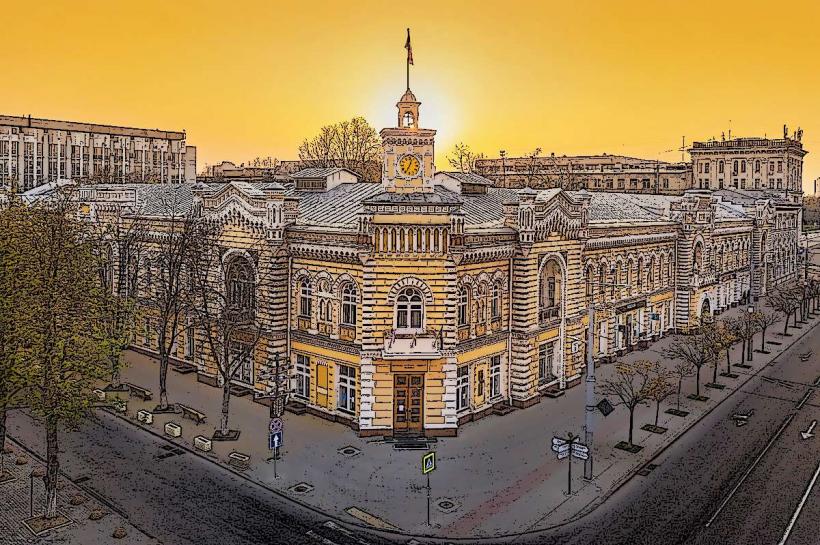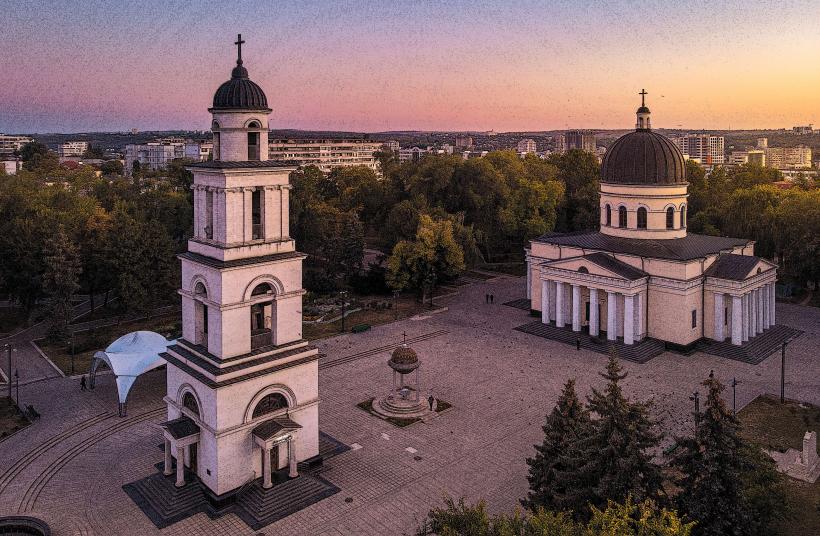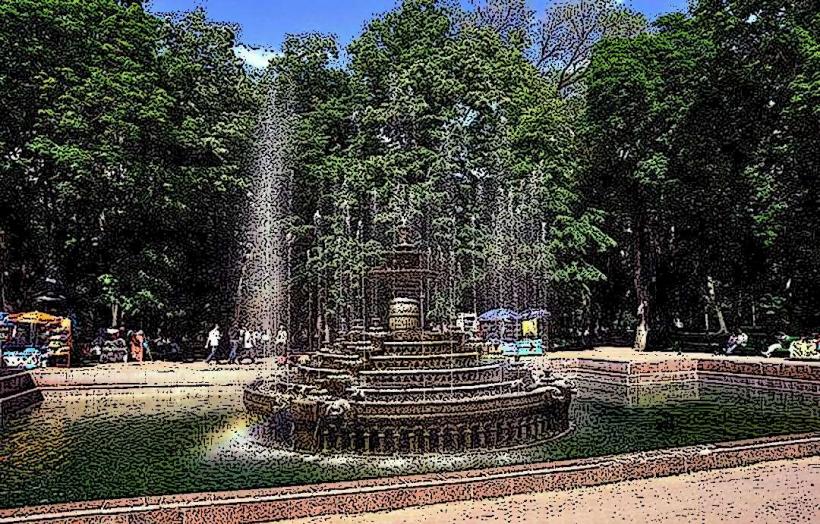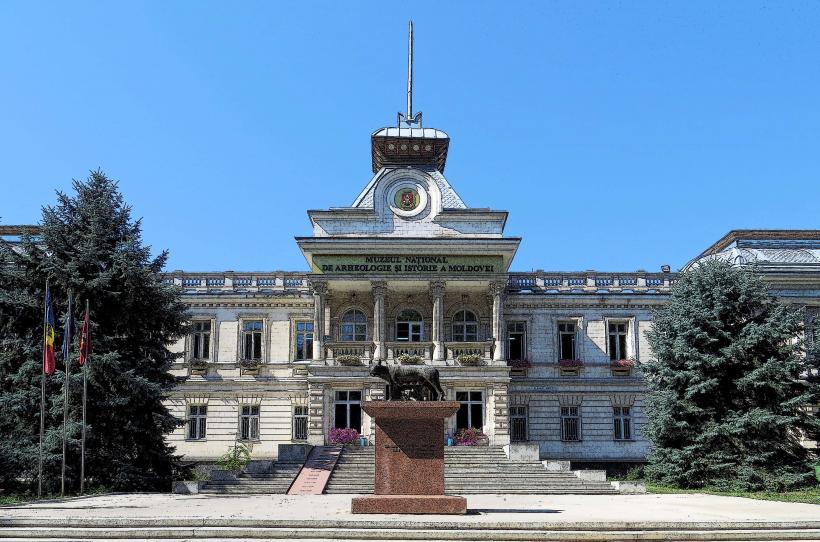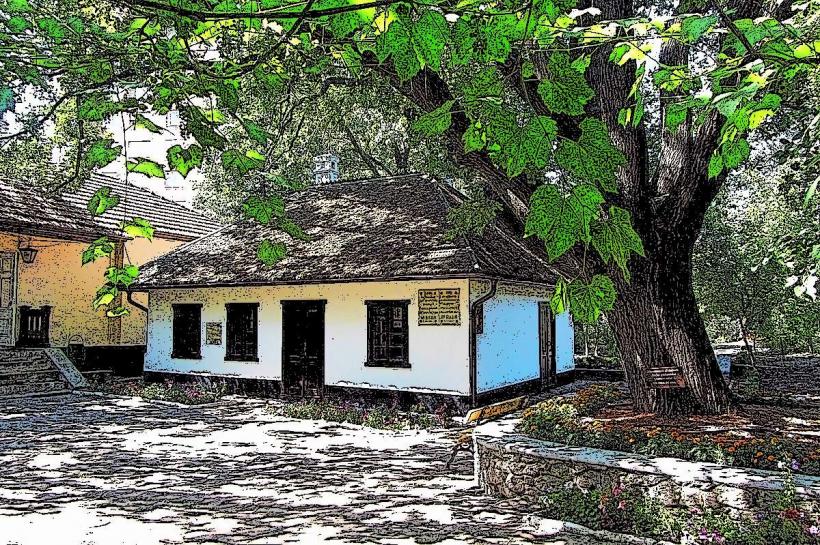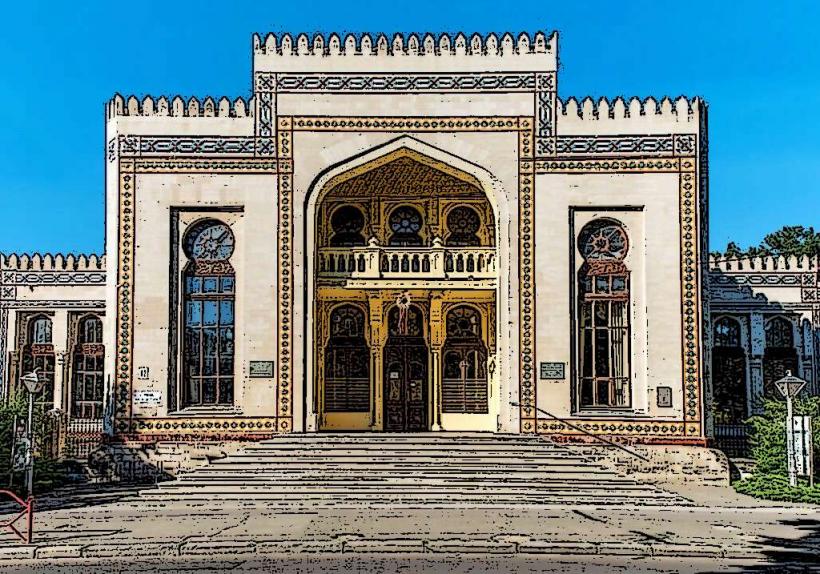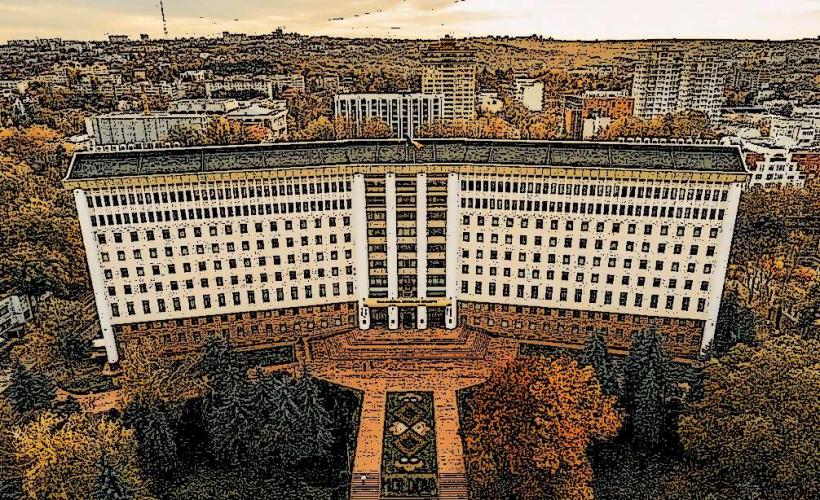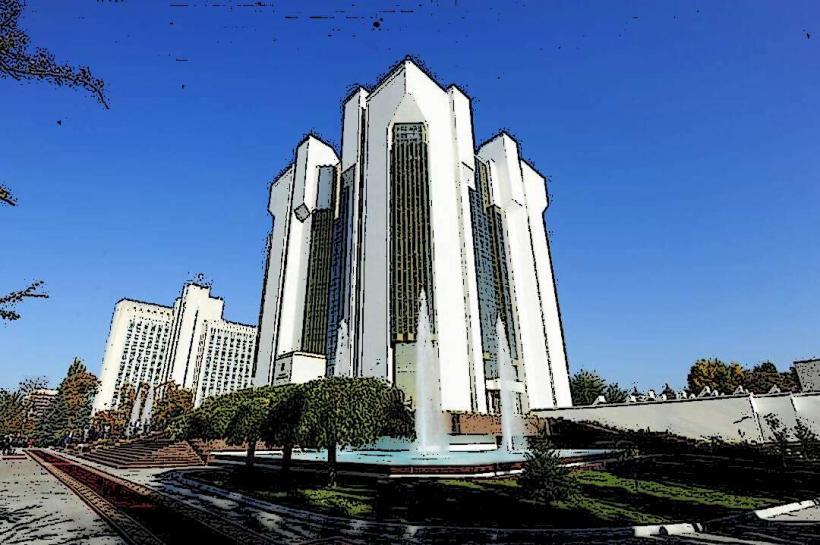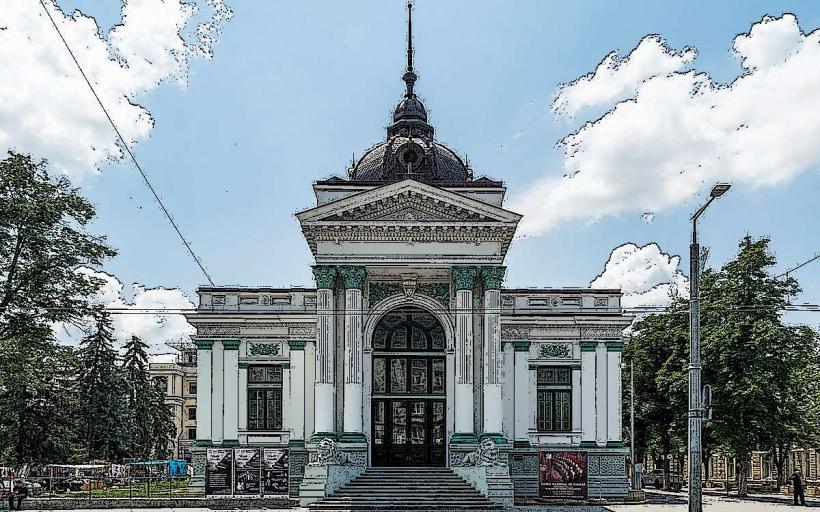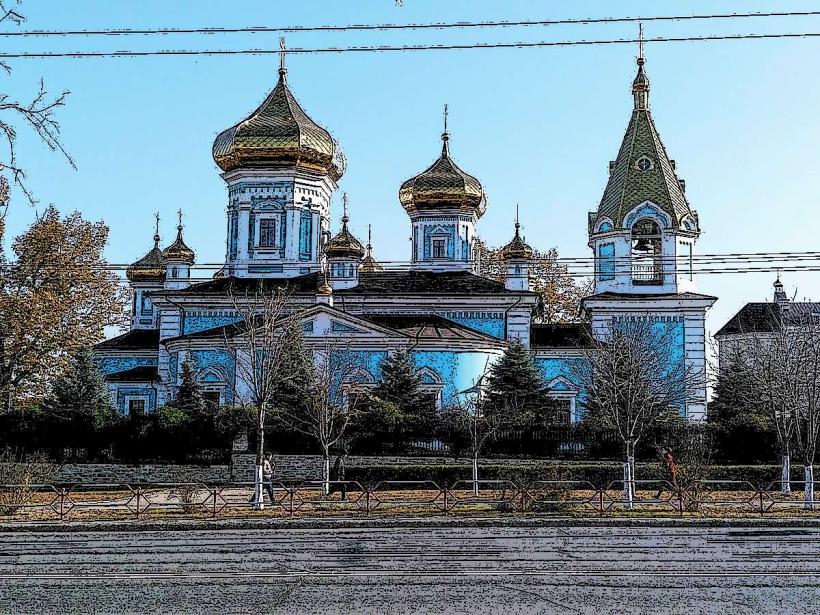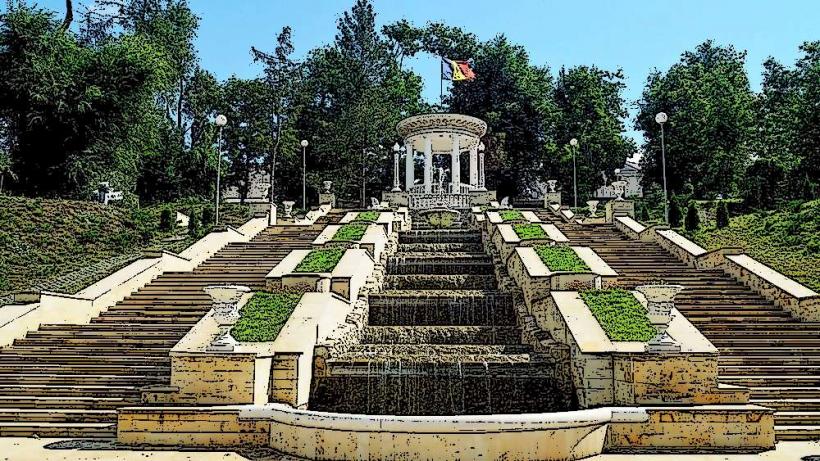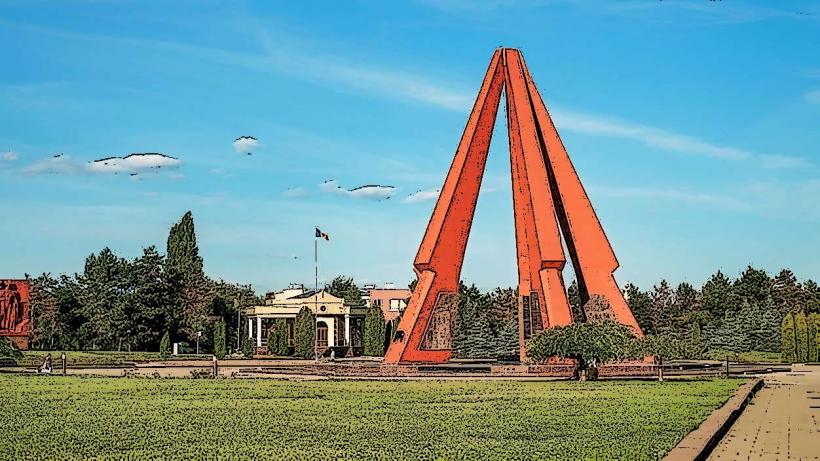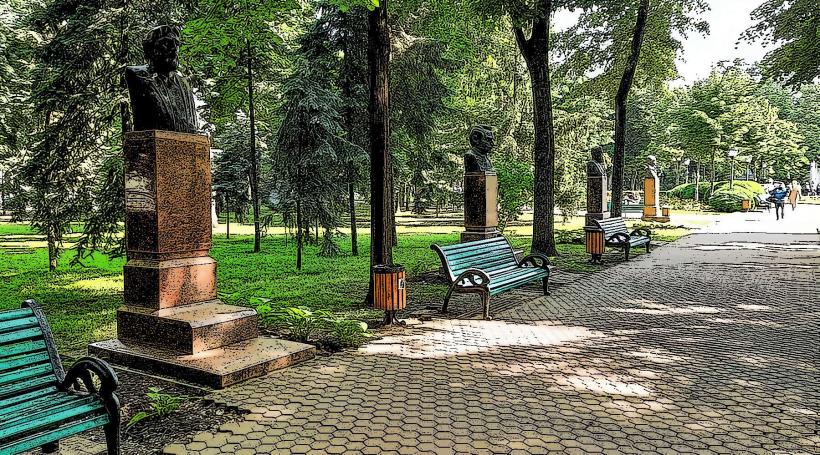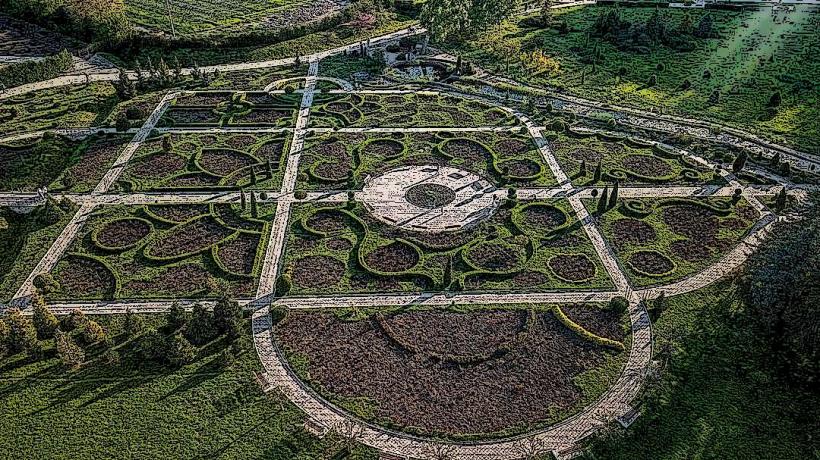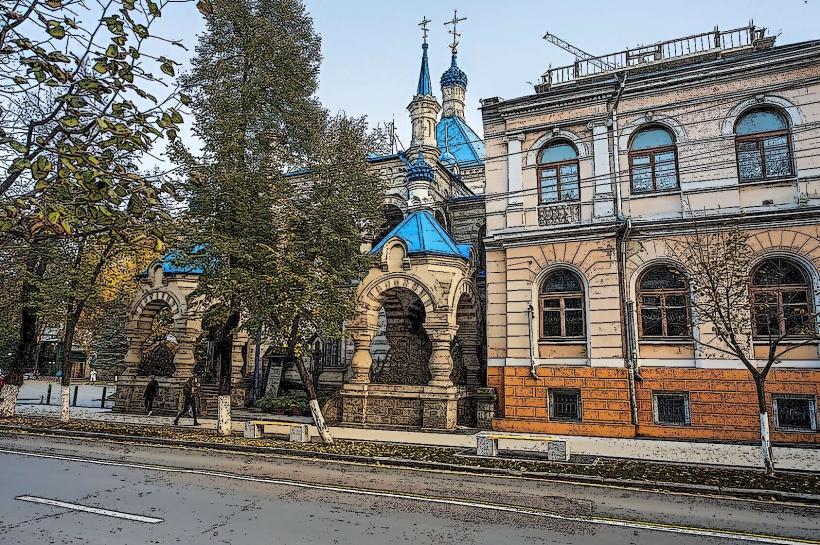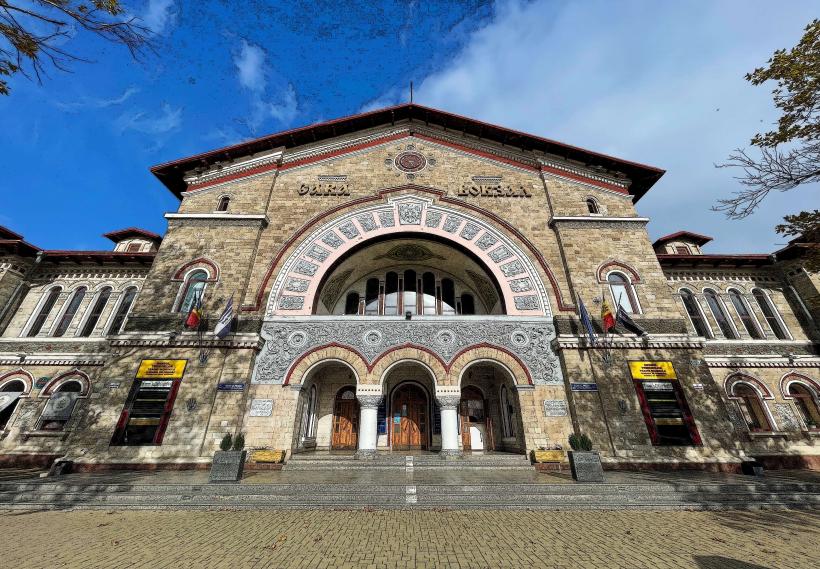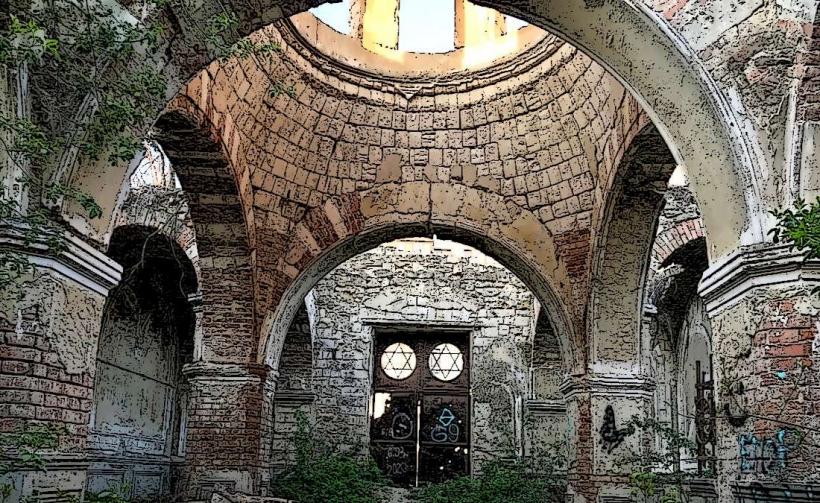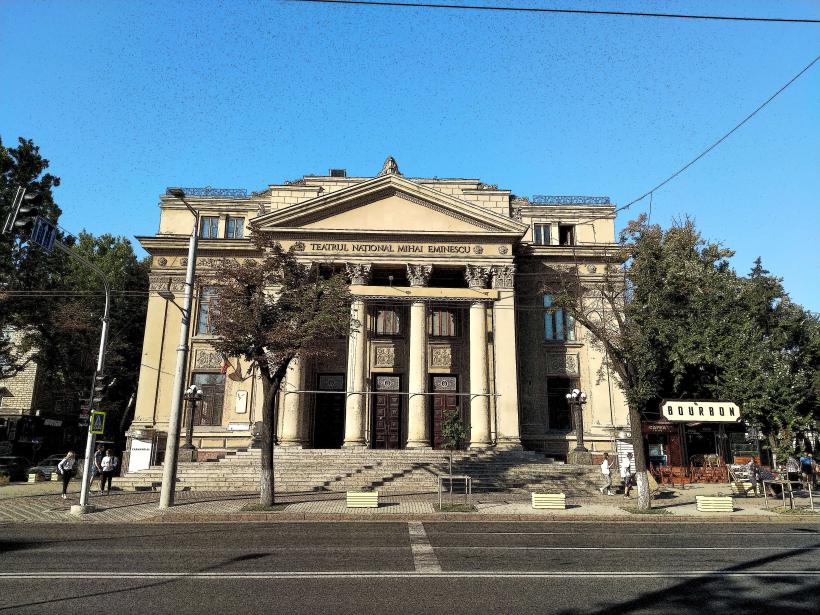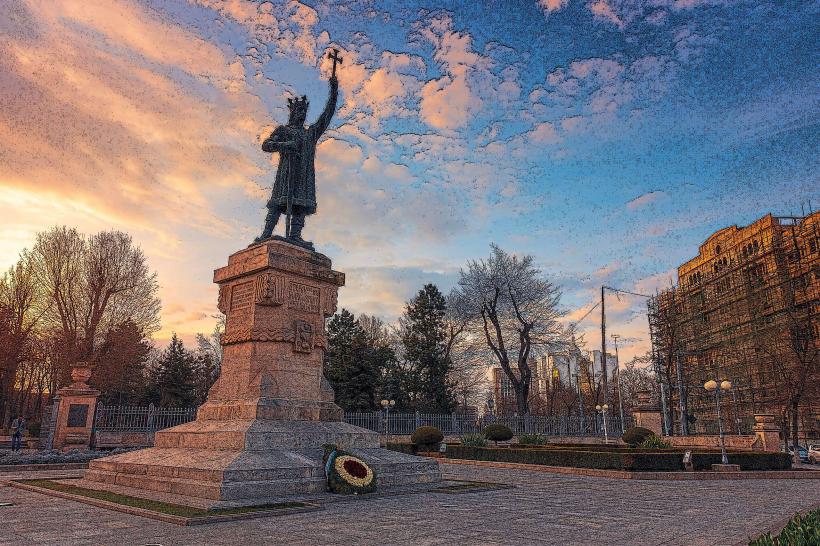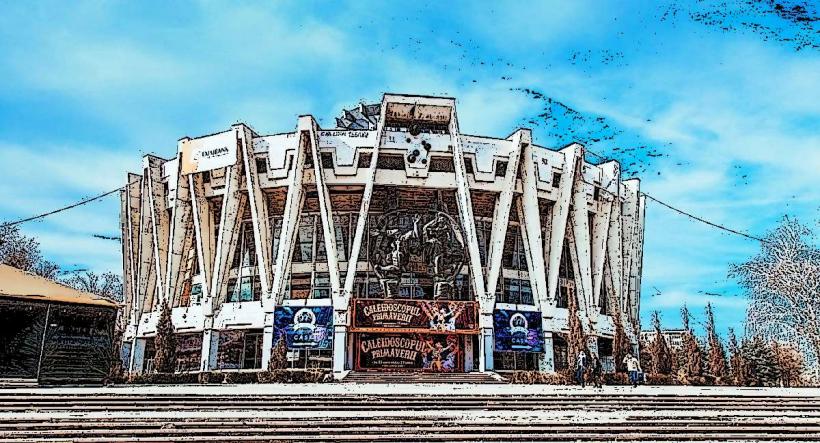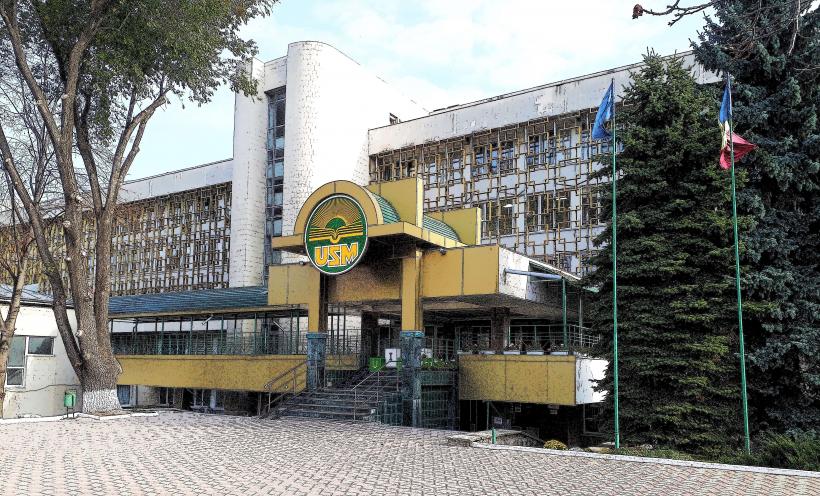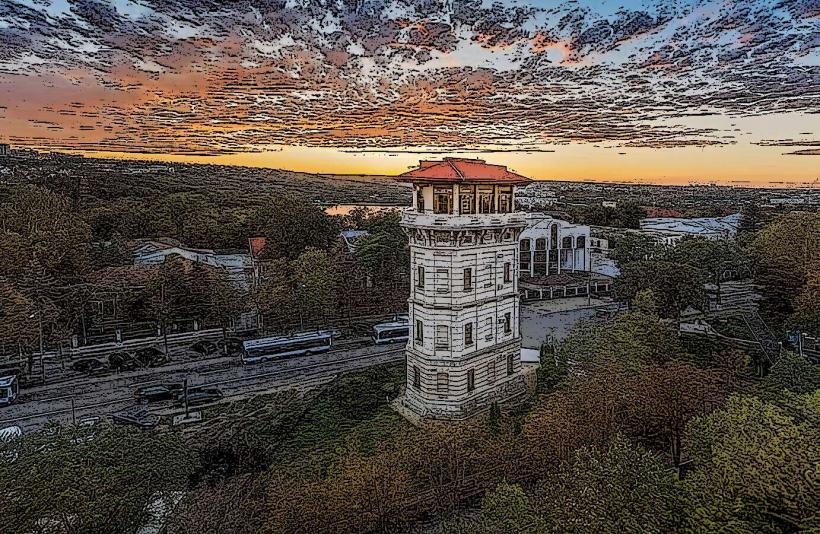Information
Landmark: Triumphal ArchCity: Chisinau
Country: Moldova
Continent: Europe
Triumphal Arch, Chisinau, Moldova, Europe
The Triumphal Arch is a neoclassical monument located in the center of Chisinau, Moldova, situated directly opposite the Government House.
Visual Characteristics
Constructed from white stone, the arch stands approximately 13 meters tall. It features two levels, with four Corinthian columns supporting the upper entablature and a pediment. The archway itself is 6.5 meters high and 4 meters wide. A clock is integrated into the upper section of the arch.
Location & Access Logistics
The arch is located on Piața Marii Adunări Naționale, at the intersection of Ștefan cel Mare și Sfânt Boulevard and Bănulescu-Bodoni Street. It is approximately 0.5 km from the geographical city center. Public transport, including numerous trolleybus and bus lines, stops directly adjacent to the square. Limited street parking is available on surrounding streets, but the immediate area is primarily pedestrian.
Historical & Ecological Origin
The Triumphal Arch was constructed in 1840 by architect I. Zauschkevici. Its original purpose was to commemorate the victory of the Russian Empire in the Russo-Turkish War (1828-1829) and to house a large church bell cast from captured Turkish cannons.
Key Highlights & Activities
Visitors can walk through the archway. The monument serves as a central point for city parades and public gatherings. Photography of the architectural details is permitted.
Infrastructure & Amenities
Public restrooms are available in the nearby Central Park, approximately 100 meters west. The area immediately around the arch offers limited natural shade. 4G/5G cell phone signal is consistently strong. Several cafes and kiosks are located within a 50-meter radius.
Best Time to Visit
The best time for photography is during the morning or late afternoon for optimal lighting conditions. The arch is accessible year-round, with pleasant weather typically from May to September. No specific tide or environmental requirements apply.
Facts & Legends
The clock on the arch was originally installed in 1842 but stopped working in the 1940s. It was repaired and restarted in 1991, coinciding with Moldova's declaration of independence. A specific tip is to observe the intricate carvings on the arch's facade, which depict military trophies and symbols.
Nearby Landmarks
- Nativity Cathedral (0.1km West)
- Central Park "Ștefan cel Mare și Sfânt" (0.1km West)
- Government House (0.05km North)
- National Museum of History of Moldova (0.8km South-West)
- Parliament of Moldova (0.4km North-West)

